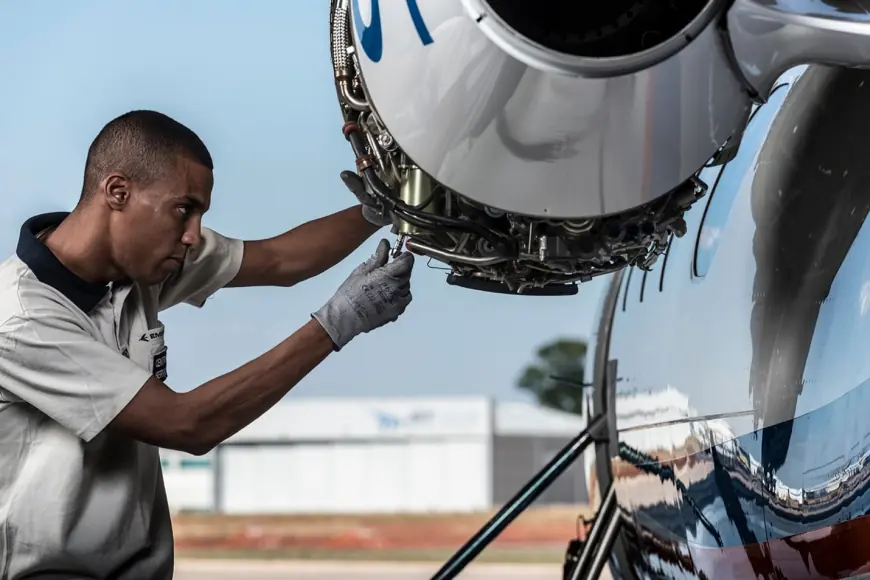Top Skills Every Aircraft Maintenance Engineer Must Have
Aircraft Maintenance Engineers (AMEs) play a crucial role in ensuring the safety, efficiency, and reliability of aircraft.

They are the unsung heroes of aviation, working behind the scenes to make sure every flight takes off and lands without a hitch. In 2025 and beyond, as the aviation industry continues to evolve with advanced technology and stricter safety regulations, the role of AMEs is more vital than ever. To succeed in this dynamic field, aspiring and practicing AMEs must develop a strong set of technical and soft skills.
1. Technical Expertise in Aircraft Systems
An AME must have in-depth knowledge of aircraft structures, engines, avionics, and other critical systems. Understanding how these systems work, interact, and can fail is essential for diagnosing and fixing issues. Continuous learning is a must, as modern aircraft are becoming increasingly advanced with digital systems and automation.
2. Attention to Detail
Even the smallest oversight can lead to significant risks in aviation. AMEs must be detail-oriented, ensuring that every inspection, maintenance task, and repair meets the highest safety standards. Precision and accuracy are non-negotiable in this profession.
3. Problem-Solving Ability
Aircraft maintenance often involves troubleshooting complex technical issues under time pressure. Engineers must think critically and creatively to identify problems quickly and implement effective solutions that comply with aviation regulations.
4. Knowledge of Safety Regulations
A strong understanding of aviation safety standards and regulations (such as those set by DGCA, EASA, or FAA) is crucial. AMEs must ensure that all maintenance tasks adhere strictly to regulatory requirements, as compliance directly impacts passenger safety and airline operations.
5. Communication and Teamwork
Maintenance engineers work closely with pilots, ground staff, and other engineers. Clear communication ensures that all parties are aligned on issues, solutions, and safety measures. Teamwork is equally important, as successful aircraft maintenance requires collaboration across departments.
6. Adaptability to Technology
With the aviation industry rapidly embracing digital transformation, AMEs must stay updated with the latest tools, software, and diagnostic equipment. Familiarity with advanced avionics, computer-based maintenance systems, and automation is becoming increasingly essential.
7. Time Management and Stress Handling
Aircraft maintenance is often time-sensitive, especially during quick turnarounds between flights. Engineers must manage their time effectively while working under pressure, without compromising on safety and accuracy.
8. Physical and Mental Stamina
The job of an AME is demanding, involving long hours, physical tasks, and high levels of concentration. Stamina, focus, and resilience are vital traits that help engineers perform their duties consistently.
A successful career in Aircraft Maintenance Engineering requires more than just technical knowledge—it demands discipline, precision, adaptability, and strong interpersonal skills. As aviation continues to evolve, AMEs who invest in honing these skills will stand out in the industry and open doors to global opportunities.
If you’re aspiring to build a career in this exciting field, SAME (School of Aircraft Maintenance Engineering) offers world-class training programs designed to equip you with the skills and knowledge required to excel as an AME. Take the first step toward your aviation career today!
What's Your Reaction?
 Like
0
Like
0
 Dislike
0
Dislike
0
 Love
0
Love
0
 Funny
0
Funny
0
 Angry
0
Angry
0
 Sad
0
Sad
0
 Wow
0
Wow
0

















































